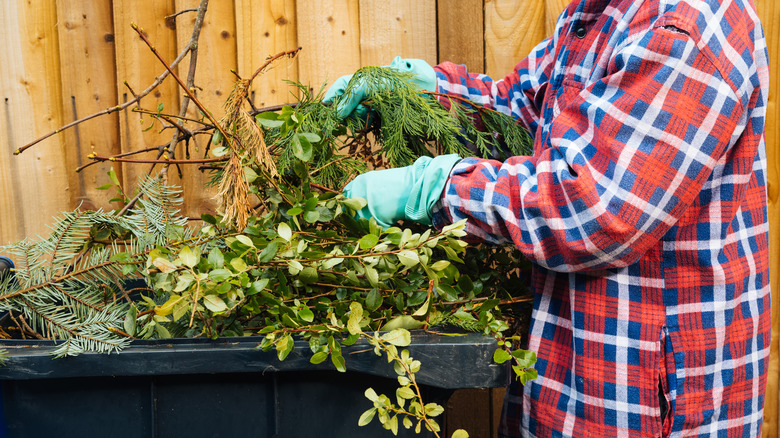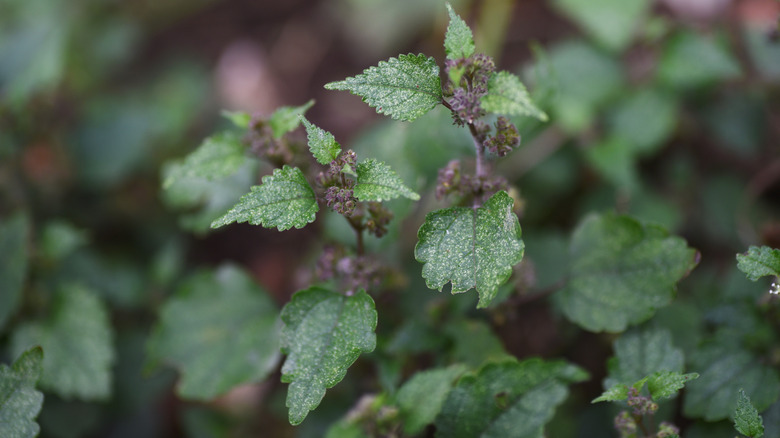You Want To Skip Composting This Invasive Weed And Put It In The Trash Instead, Here's Why
Mulberry weed is considered an invasive plant due to its rapid growth, high seed production, and ability to outcompete native plants. Hailing from Asia, the weed has spread to various parts of the world, becoming a problem in a number of ecosystems, including the United States. Its invasive nature can disrupt natural habitats by forming dense stands that shade out and crowd native plants.
Tossing mulberry weed in compost heaps can actually exacerbate its spread. Composting may not reach temperatures high enough to kill its seeds, and it could inadvertently spread the weed when it's applied to gardens or lawns. This practice can lead to accidental infestations and perpetuate mulberry weed's invasive cycle. To prevent further spread, you should dispose of mulberry weed by bagging it in a manner that prevents it from releasing seeds, such as placing it in sealed plastic bags, and sending it to a landfill or composting facility that reaches the necessary temperatures to kill the seeds.
How to identify and prevent mulberry weed from spreading
Gardeners and homeowners can identify mulberry weed by its distinctive characteristics. It is a low-growing annual plant with rounded, serrated leaves that resemble those of mulberry trees, but on a smaller scale. The leaves are typically hairy and have a rough texture. The plant produces inconspicuous green flowers that develop into small, green fruit clusters that turn purplish-black when they mature. These fruit clusters are often hidden within the foliage. Mulberry weed tends to grow in disturbed areas, gardens, lawns, and along roadsides.
To prevent the spread of mulberry weed on your property, you should be on the lookout for early detection if you live in an area where the plant is prominent. Regularly inspect your landscape for any signs of the weed, especially in areas where it's likely to establish itself. If you identify mulberry weed, it's important to quickly remove and bag the plants, making sure not to shake or disturb the plants. Dispose of the bagged plants in the trash or another appropriate disposal method that prevents seeds from spreading. Implementing good garden practices, such as using mulch around plants and promoting healthy vegetation, can also help limit empty spaces where mulberry weed could establish itself. By staying vigilant and taking preventive measures, you can effectively manage and control the spread of mulberry weed on your property.

